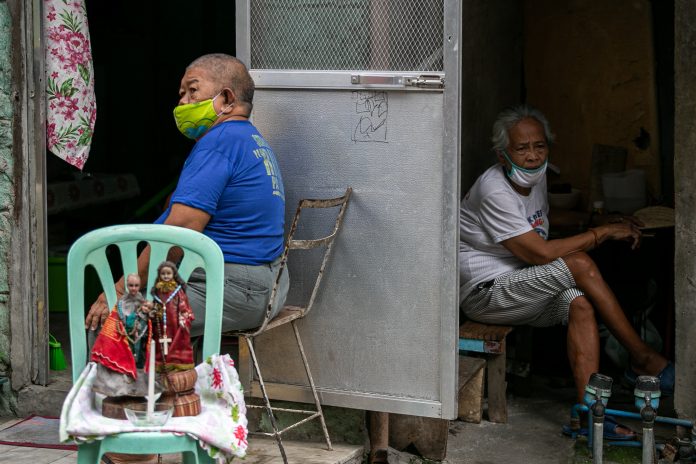The prolonged lockdown due to the coronavirus pandemic has exposed a lot of elderly to abuse, according to the Philippines’ Commission on Human Rights.
Karen Gomez-Dumpit, focal commissioner on Aging and the Human Rights of Older Persons, said there is “emerging evidence that violence, abuse, and neglect of older persons increased” globally due to the pandemic.
“In the country, we are still unaware of their actual situation within homes, institutions, and communities,” she said.
The World Health Organization defines elder abuse as “a single or repeated act, or lack of appropriate action, occurring within any relationship where there is an expectation of trust which causes harm or distress to an older person.”
The international body said elder abuse can take various forms, including “financial, physical, psychological, and sexual, and can also be the result of intentional or unintentional neglect.”
In 2006, the International Network for Prevention of Elder Abuse designated June 15 as World Elder Abuse Awareness Day aimed to raise awareness of elder abuse.
WHO estimated 15 percent of the population in the European Region or 30 million people over the age of 60 “to be affected by some form of abuse” in 2019.
“While it is too early to have robust, updated data for 2020, it is believed that abuse towards older people has risen significantly during the COVID-19 pandemic,” WHO said in a statement.
WHO noted that there have been “numerous reports of abuse and neglect of older people living in long-term care facilities and other community settings, but also of those living with family members or in their own homes with caregivers” during the pandemic.
It said that prior to the global health crisis, a total of nine studies in six countries based on staff self-reports on perpetrating abuse revealed “64.2 percent of staff – 2 out of 3 – perpetrated some form of abuse in the past year.”
“There is concern that ageism and gender inequalities have worsened during the pandemic, increasing the risk of abuse and violence against older women,” the statement read.
“At the same time, quarantine and lockdown measures have limited access to essential services, putting many older people at risk of increased neglect,” it added.
WHO called on decision-makers to “develop universally applicable normative standards” for the protection of the elderly.
“The focus should be on engaging the community in understanding the signs of elder abuse and providing advice via radio, television, the internet, and print and social media on how victims can seek help and receive support safely,” the statement read.
Elder abuse, Gomez-Dumpit said, “despite its seriousness, is an invisible issue” in the Philippines, adding that it is underreported and no enough focused research.
She said children and other family members are the most often perpetrators of abuse.
“Older persons have the right to be free from violence, abuse, and neglect,” she said urging families and communities to take part in “ensuring that no older person experiences human rights violations.”









